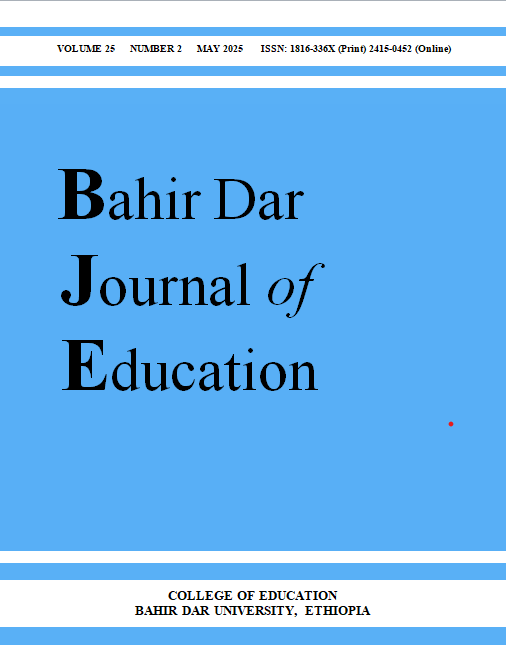The impact of psychological capital on universitystudents’ academic achievement mediated through academicengagement
Abstract
This study examined the impact of psychological capital on university students' academic achievement mediated through academic engagement. A quantitative research method with a cross-sectional correlational design was employed. Data was collected usingvalidated questionnaires from regular undergraduate engineering students (N=321) at Bahir Dar University in Ethiopia, selected by stratified random sampling. Structural equation modeling was the maindata-analyzing technique. The study found that psychological capital significantly and positively impactedstudents‘ engagement and academic achievement. Academic engagement played a partial mediation role in the relationship between psychological capital and academic achievement. From the findings, it can be concluded that psychological capitaland academic engagement are potential factors for students‘ better academic outcomes,highlighting theneed for interventions that strengthen psychological resources and increase student engagement to improve academic performance
Copyright (c) 2025 Fenta Belete Amera, Dawit Asrat Getahun (Ph.D.), Tiruwork Tamiru Tolla(Ph.D.)

This work is licensed under a Creative Commons Attribution 4.0 International License.
Authors who publish with this journal agree to the following terms:
- Authors retain copyright and grant the journal right of first publication with the work simultaneously licensed under a Creative Commons Attribution License that allows others to share the work with an acknowledgement of the work's authorship and initial publication in this journal.
- Authors are able to enter into separate, additional contractual arrangements for the non-exclusive distribution of the journal's published version of the work (e.g., post it to an institutional repository or publish it in a book), with an acknowledgement of its initial publication in this journal.
- Authors are permitted and encouraged to post their work online (e.g., in institutional repositories or on their website) prior to and during the submission process, as it can lead to productive exchanges, as well as earlier and greater citation of published work (See The Effect of Open Access).

